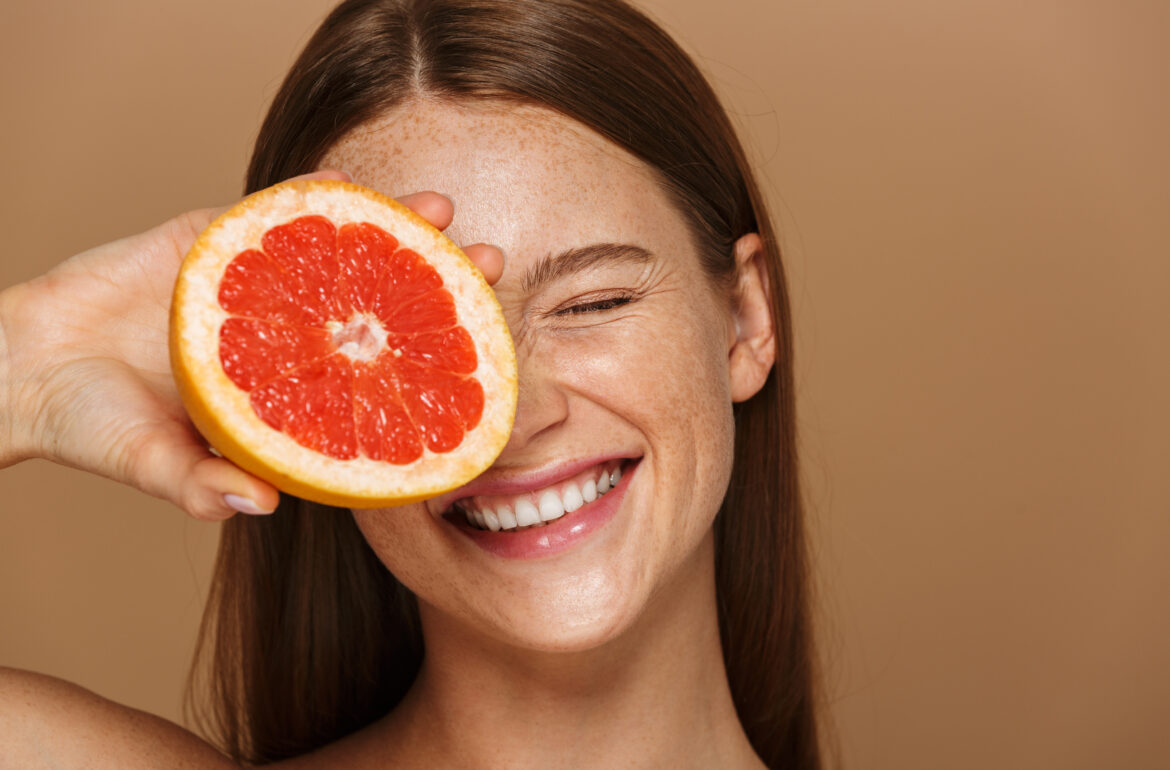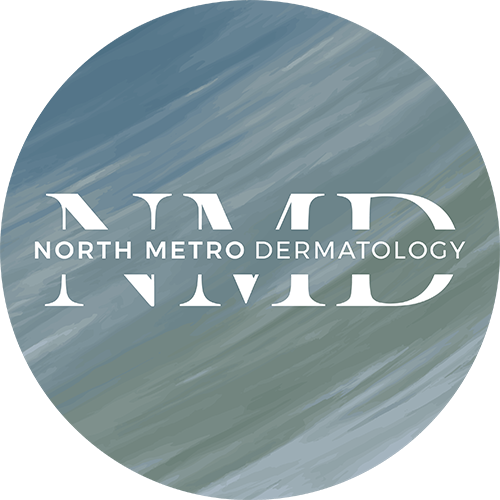FOOD FOR THOUGHT – DIET AND NUTRITION’S IMPACT ON SKIN HEALTH 2023

One of the most common questions we get in the office about different skin conditions is: “Is it something I’m eating?” This can be a tricky question to answer. Most of the time, the answer is probably no. But, everybody’s skin is unique. What may not affect one person’s skin may aggravate another’s. Here are some common skin conditions and what we know about the food factor:
ACNE-PRONE SKIN:
The link between diet and acne has been a controversial subject for a long time. The few studies that have been done up to this point have been small, so it’s difficult to come up with a one-size-fits-all recommendation. Here are some things to consider:
- Avoid a high glycemic index diet: Some studies suggest that diets with a lot of processed, sugary food may result in an increase in a hormone called insulin-like growth factor (IGF) throughout the body. High levels of IGF could lead to inflammatory acne breakouts. If you struggle with acne, it’s best to lay off excessive candy, soda, potatoes, white bread, or white rice.
- Think (but don’t overthink) about dairy: Some small studies suggest a possible link between cow’s milk and increased risk of acne- particularly low-fat or skim milk. But, we don’t have robust data to definitively say that this is the case across the board.
- Mostly good news for chocolate lovers: There’s no strong evidence that chocolate increases risk of acne! *collective sigh of relief*. That being said, milk chocolate and sugar-sweetened dark chocolate are going to have a higher glycemic index than unsweetened chocolate, so keep that in mind when you want to indulge!
Bottom line: There are no specific dietary changes necessary for controlling acne. Avoiding lots of sugary junk food will be kind to your whole body, not just your skin. The jury is still out on dairy as far as worsening acne, so unless you’re noticing consistent breakouts that line up with milk or cheese products, you probably don’t have to cut it out altogether. Overall, the treatments available for acne-prone skin are far more practical and impactful (and way less stressful) than placing yourself on a crazy restrictive diet, so talk with your dermatology provider before making drastic changes to what you do and don’t eat!
ROSACEA-PRONE SKIN:
Rosacea is a chronic inflammatory skin condition usually diagnosed by your primary care or dermatology provider. Some foods or drinks can cause rosacea to flare, causing increased facial redness, flushing, and/or pimple breakouts. Here are some “common culprit” foods and drinks:
- Alcohol
- Spicy foods
- Foods that are hot in temperature
- Wet noodles, tofu (foods containing formalin)
- Turkey (niacin containing foods)
Bottom line: If you have been diagnosed with rosacea, consider keeping a food diary to go over with your dermatology provider at your office visit to help understand if the timing lines up with food or drink triggers. Your dermatology provider may recommend dietary changes that could be helpful down the road.
ECZEMA-PRONE SKIN:
So far, there are no robust studies showing diet to be particularly impactful on eczema. Diet modification will not cure eczema. In fact, avoiding certain foods can place you at a higher risk for malnutrition or even developing new allergies.
Bottom line: Diet changes won’t cure eczema. It’s more important to focus on gentle skin care, hydration, and maintaining a well-balanced, nutritious diet to help keep your skin barrier healthy and support your immune system to prevent infections.
WHAT'S NEXT?
More research is definitely needed when it comes to diet and skin. There are many voices out there, whether on the internet or in day-to-day conversations, that make pretty bold claims about restrictive diets being “miracle cures.” But, when all is said and done- when you’re looking at what has actually been scientifically studied, we don’t have a lot of definitive proof to back those claims up. And while there may not be a ton of direct impacts of diet directly on skin, it’s fair to look at the big picture.
HEALTHY FOOD
Healthy food fuels a healthy body- including happy and healthy skin! A nutrient-rich, well-balanced diet with whole foods (fruits and vegetables, healthy fats, whole grains, generally keeping sugary junk food to a minimum) will serve you best. If you are considering changing your eating habits or adding in supplements for the sake of your skin, please (pretty please!) check in with your dermatology provider first. We’re here to help!


